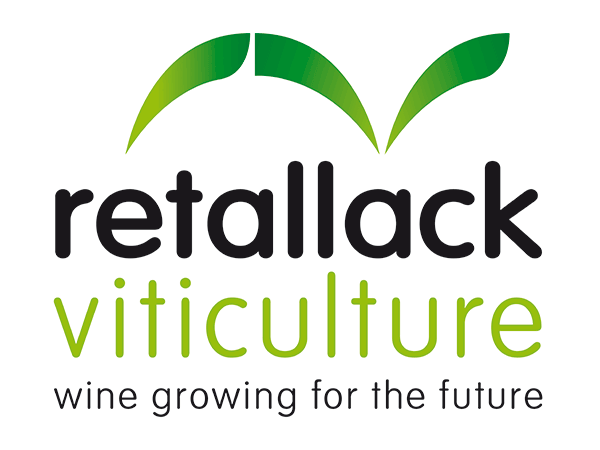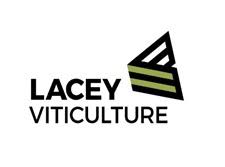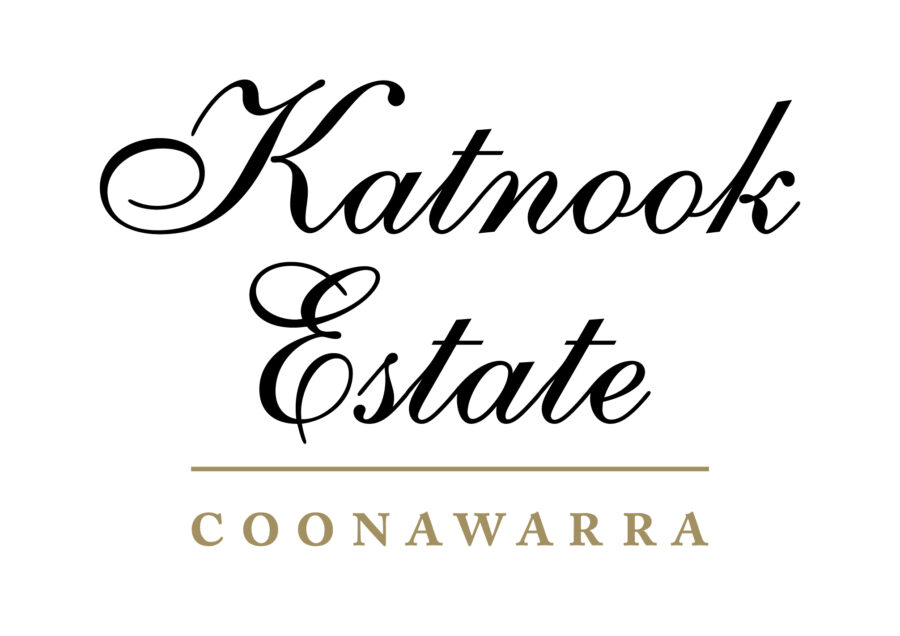Welcome to the National EcoVineyards program!
Winegrape growers throughout Australia will be supported in their actions to enhance soil health and increase functional biodiversity in their vineyards through the EcoVineyards program.
Through EcoVineyards, growers will have access to new region-specific resources, an online information portal, 40 demonstration vineyards across 10 wine regions and on-the-ground support from local coordinators. Over the next three-years, there will be many learning opportunities and strong regional collaboration to help future proof fruit quality, production, and the resilience of Australian vineyards.
This national program is funded by Wine Australia and delivered by Retallack Viticulture Pty Ltd with significant support from regional communities.
Stay tuned for more details… the program commences in July 2022.
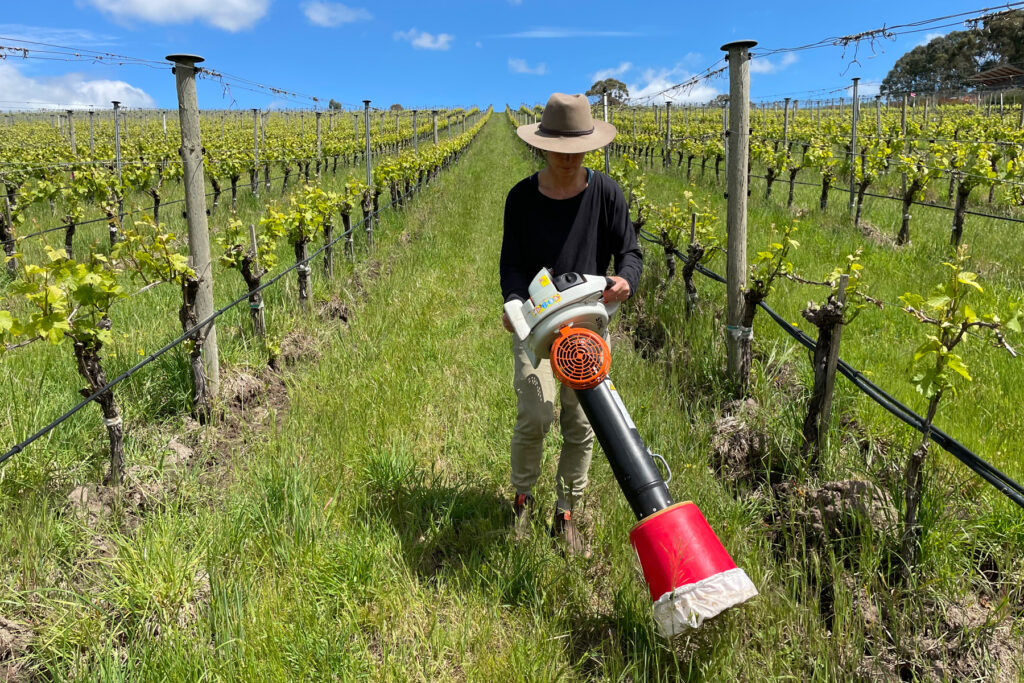
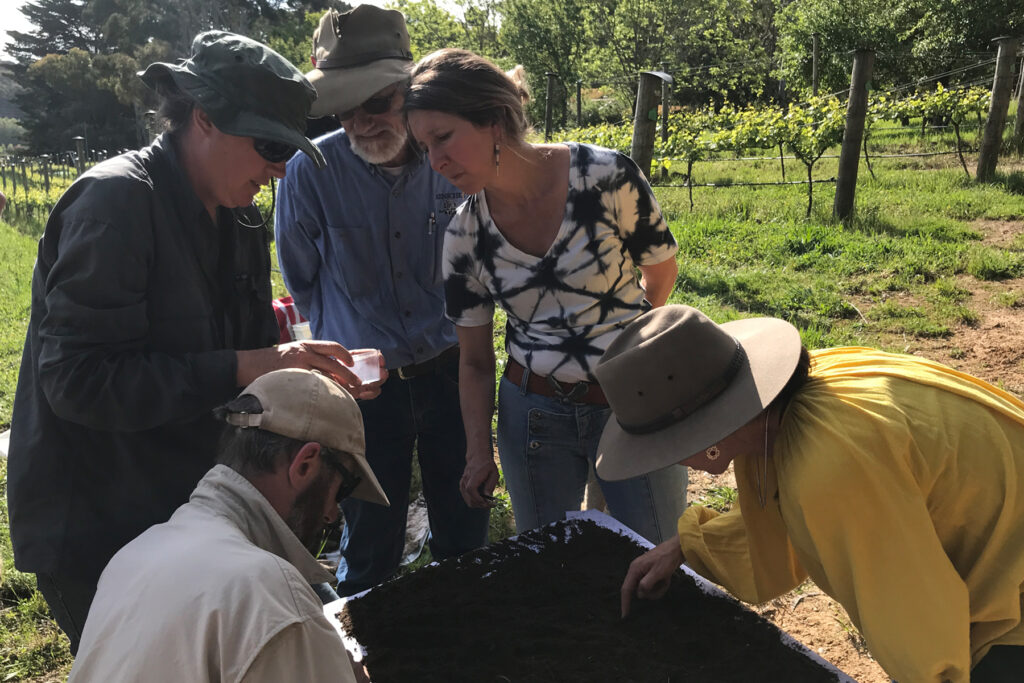
About EcoVineyards
Program objectives
The national EcoVineyards program aims to accelerate adoption and practice change outcomes specified in Wine Australia’s Strategic plan 2020-25 specifically:
- to increase the land area dedicated to enhancing functional biodiversity by 10 per cent, and
- to increase the use of vineyard cover crops and soil remediation practices by 10 per cent
How will growers benefit?
Program staff in each region will work with wine growers to establish up to 40 demonstration sites in ten wine regions throughout Australia.
We aim to increase the land area dedicated to enhancing functional biodiversity in and around vineyards including the use of multi-species ground cover plants and soil remediation practices.
We believe this can be achieved by focusing on 100% functional plant cover, 100% of the time.
The EcoVineyards approach is based on science and evidence-based learning, an interactive approach which brings together both academic peer-reviewed research and the application of these insights via participatory action learning to accelerate the sharing of insights in real time.
Our model of participation will be used to provide growers with the knowledge and tools to grow wine grapes with minimal intervention over the longer-term. We will demonstrate a variety of regionally tailored practices to grow resilience, so agroecosystems can rebound more quickly after disruption including extreme weather events. By tapping into the sophistication and intelligence of nature we believe we can create better buffered production systems.
National EcoVineyards Program Manager and Agroecologist, Dr Mary Retallack explains, “Locally-adapted, diverse and functional ground cover plants have the capacity to provide benefits including biocontrol of insect pests, weed suppression, erosion control, improved soil structure, nutrient cycling, soil water retention, improved soil organic carbon and biological activity. By establishing supplementary flora in and around vineyards, we aim to help growers save time and resources by producing healthy grapes, with lower pest incidence while at the same time, enhancing the resilience and biodiversity of their vineyard.”
We will also produce best practice management guides (BPMG) as a ‘living document’ for each topic area throughout the course of the program. We will furnish wine growers with tailored information and insights as they occur so they can make decisions that best suit their site.
Snapshot
The National EcoVineyards program is a vehicle to engage wine growers and support the acceleration of practice change and adoption.
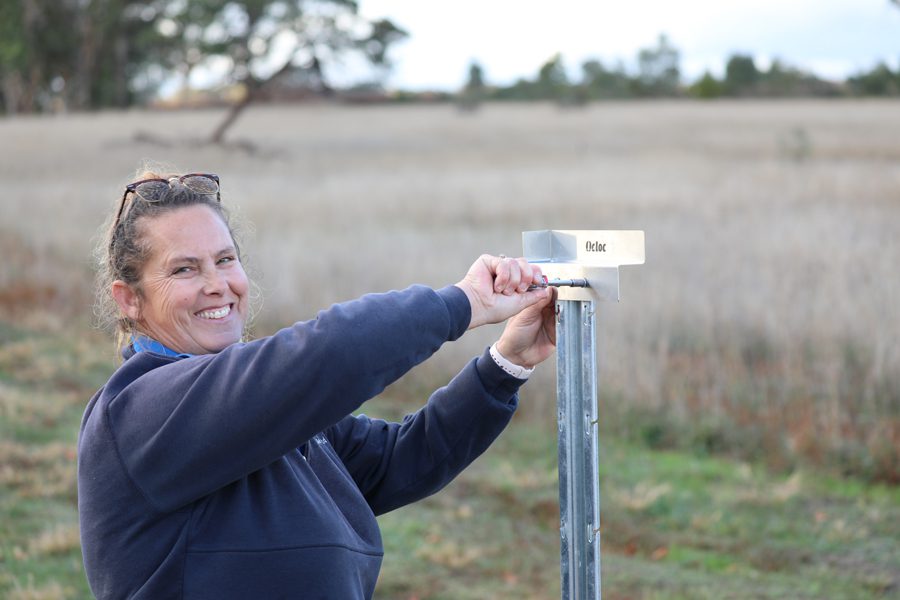
Retallack Viticulture has brought together 60 collaborating program partners with a common purpose. Each are committed to the program and bring a diversity of skills and networks to the program.
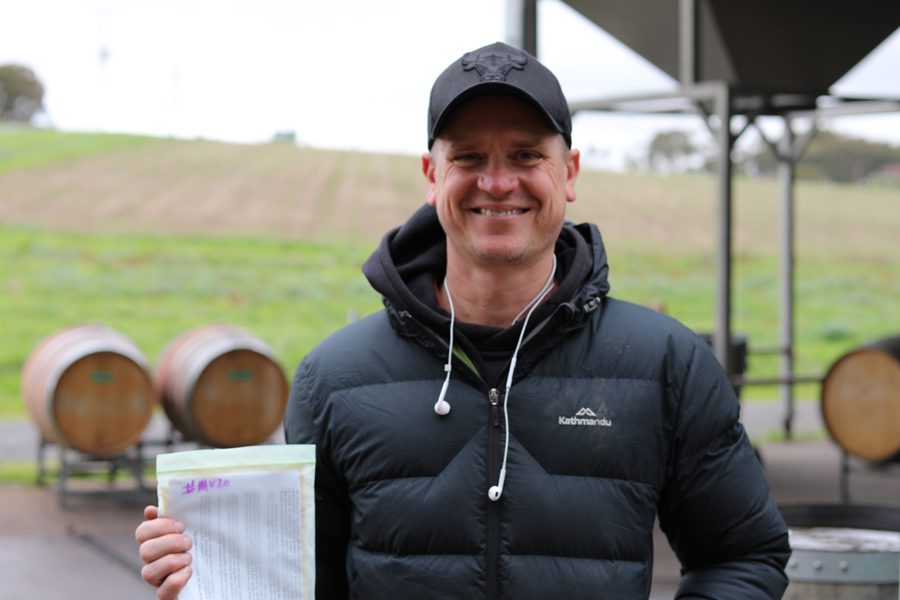
We can influence the practices of up to 6,251 wine growers and 2,361 winemakers throughout Australia who collectively manage 146,244 hectares of wine grapes.
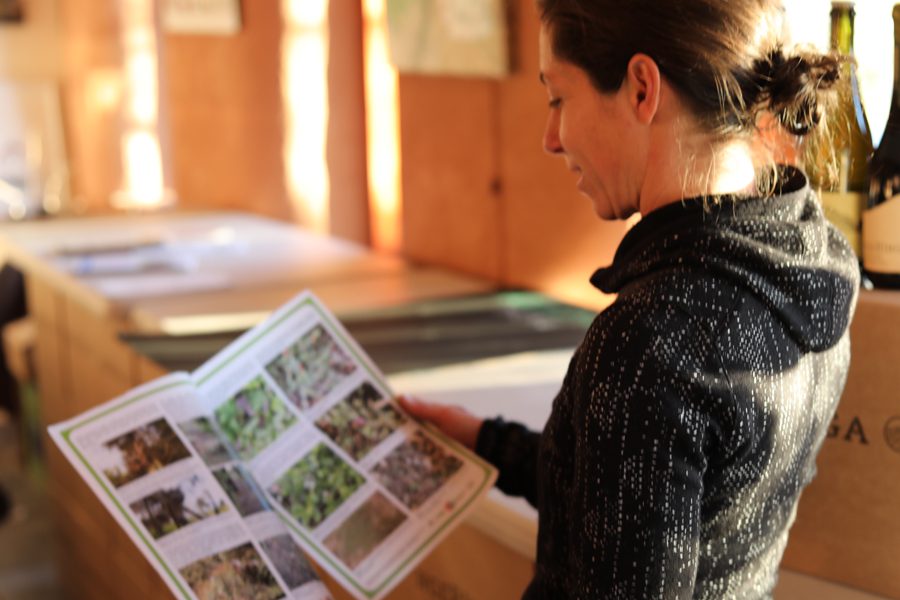
We will complete a review of current topic resources and produce a series of best practice management guides (BPMG) for soil health, ground covers/cover crops, and functional biodiversity, as a ‘living document’ along with a dynamic offering of ways to disseminate learnings, practical knowledge and engage growers.
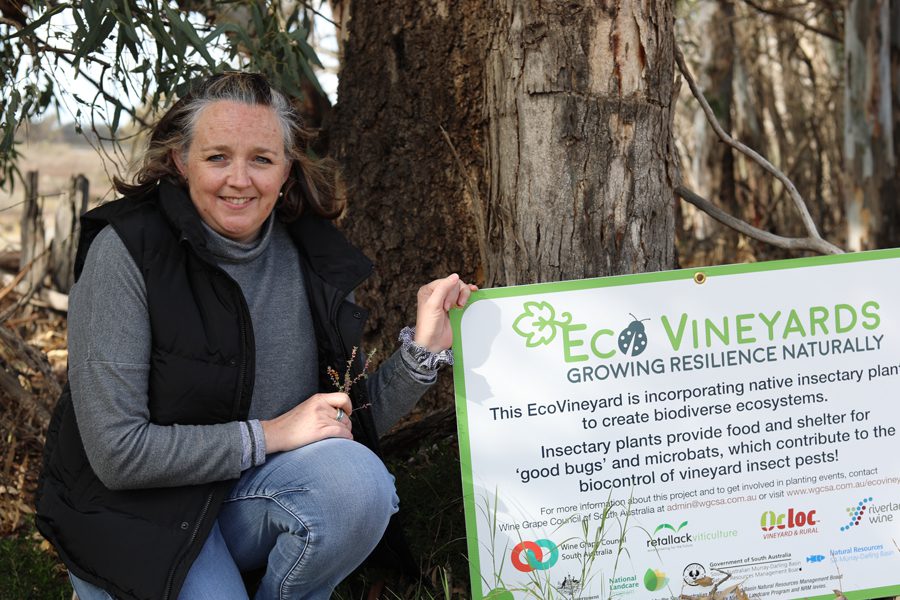
We will establish up to 40 demonstration sites in up to 10 wine regions nationally and will work with regional on-ground coordinators and a team of specialists to hold regular growing facing events both in person and online to share the benefits of these techniques and create meaningful change.
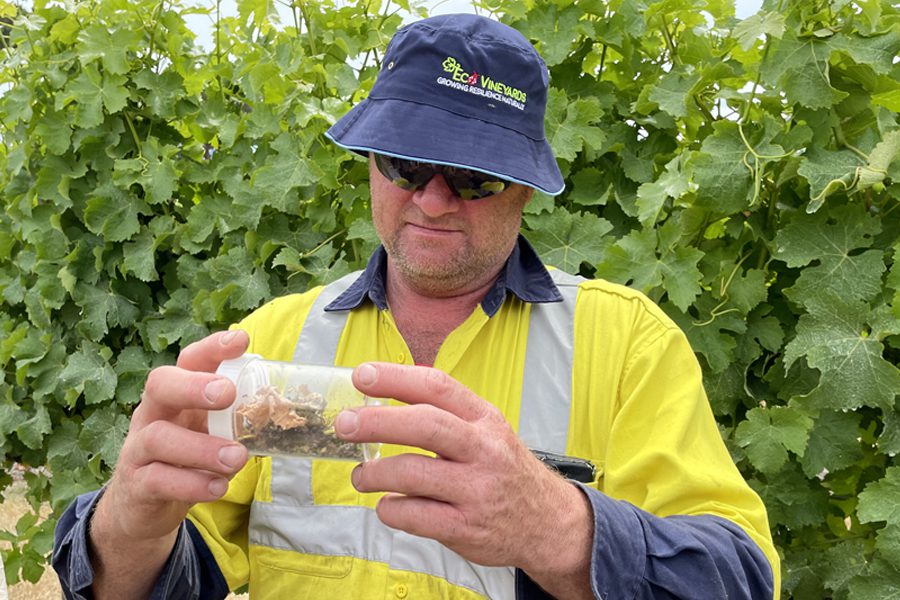
We have built measurable metrics into each aspect of the program.
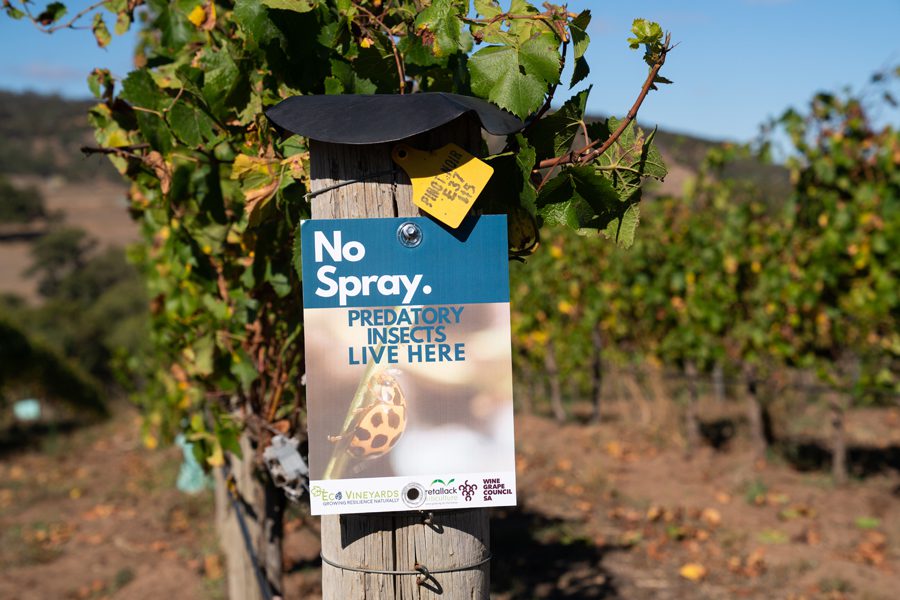
We are excited to see growing support for environmental stewardship and agroecological practices.
We are grower focused and seek to provide excellent outcomes for stakeholders.
Success stories
Why the EcoVineyards model? Does it work?
The following deliverables have been achieved since the existing EcoVineyards program began in July 2019 and provides insights to the broad and diverse ways the EcoVineyards program has created significant impact in a relatively short period of time.
70
Partnering businesses
are working in collaboration with the common purpose of fostering environmental stewardship
44
Demonstration sites
have been established across SA featuring tailored EcoVineyards signage
90
Microbat boxes
have been installed across SA (in collaboration with Seaford Rotary)
45
Predator perches
and 45 photo points have been designed, manufactured, and installed (in collaboration with Ocvitti Australia/Ocloc)
30+
Workshops
field days and networking events have been held (an average of twice per year over two and a half years in up to 7 major wine regions)
150-200
Attendees
at grower events per year
41,055
Native insectary plants
grasses, forbs, woody ground cover, shrubs and trees have been planted across all the major wine growing areas in SA
37
EcoGrowers profiles
have been completed
22
Case studies
have been completed
15
Supporting information pieces
comprising 12 articles and 3 videos is published on the existing WGCSA EcoVineyards website (to be migrated to this site soon)
9
Native plant community lists
(a summary for each participating region)
80 page
Booklet
‘Natural predators of vineyard insect pests’ written by Dr Mary Retallack, in collaboration with the Hills and Fleurieu Landscape Board
11
Fact sheets
comprising 115 pages in total have been developed showcasing biodiversity action plans (BAPs), the relationship between native insectary plants and predators found in association, fire resistant native insectary plants (in collaboration with the Northern and Yorke Natural Resources Management Board), sedges on the edges (in collaboration with Barron Environmental) and weedy Species or early succession pioneer plants… what do they tell us about our soil? (in collaboration with Kangaroo Island landscape Board)
6
Signage templates
EcoVineyards signage templates x 3 large and x 3 small format for native insectary plants and the arthropods found in association have been produced in collaboration with Wine Australia with state-wide set pricing for tailoring/editing, production and installation negotiated with a local service provider (Insideout Print and Signage)
498
Facebook followers
both local and international
730
Instagram followers
both local and international
Testimonials
Culture
We wish to move beyond the conditioning that, “we often do more of the same and expect a different outcome” and draw from an ecology analogy to reset our aspirations.
- A mono-culture (or simple structure) is a fragile and poorly buffered system where problem weeds and insects often dominate, and regular intervention is required to produce a crop.
- Conversely, a poly-culture (or complex structure) with good functional biodiversity and soil health has greater resilience, can rebound more quickly after disruption (including extreme weather events), is able to self-regulate with less intervention, and growers can potentially save both time and resources.
We thrive on innovation and our aspiration is that wine growers delight in growing grapes, are profitable, inspired by the nature that surrounds them and feel a sense of reciprocity towards the land they farm.
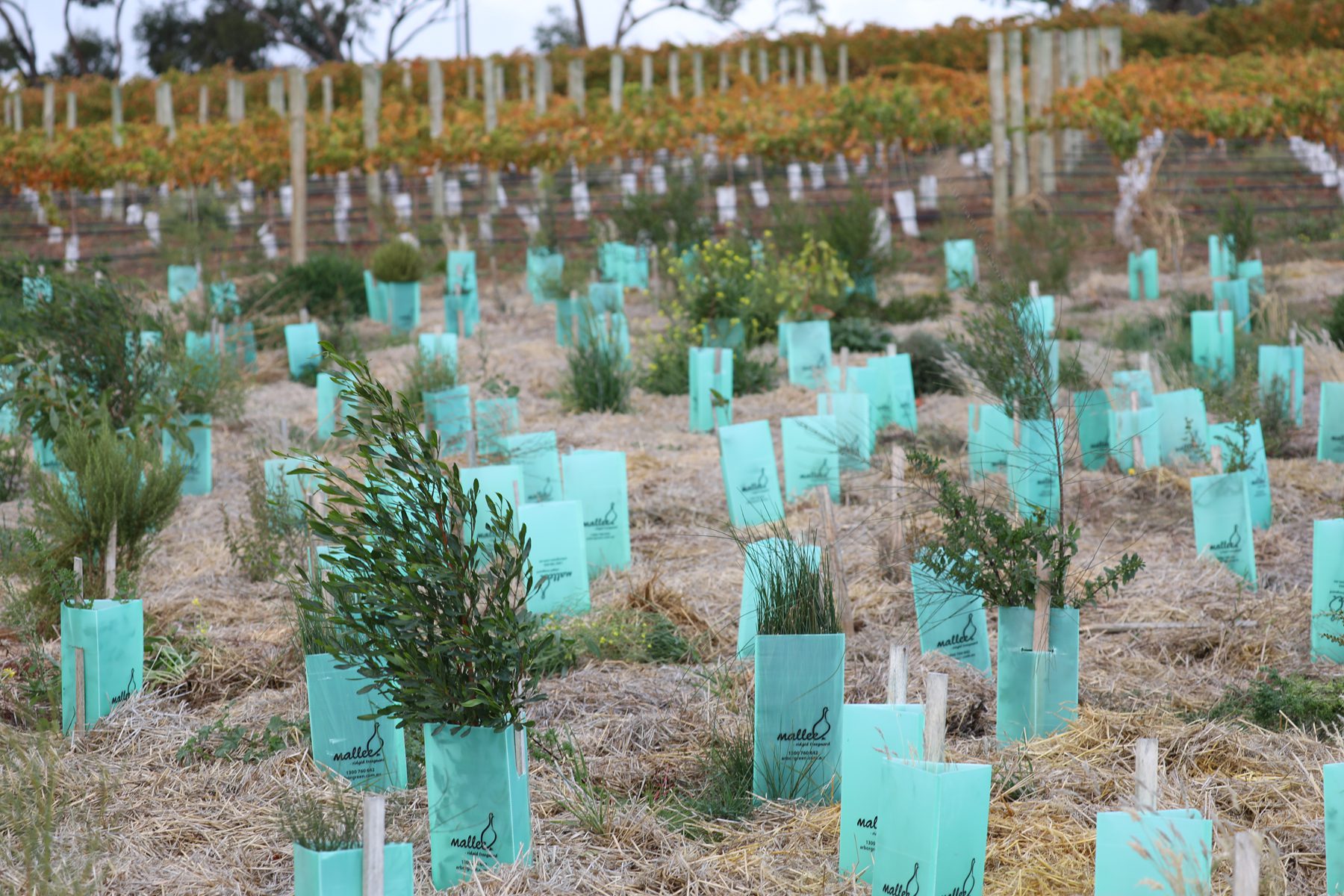
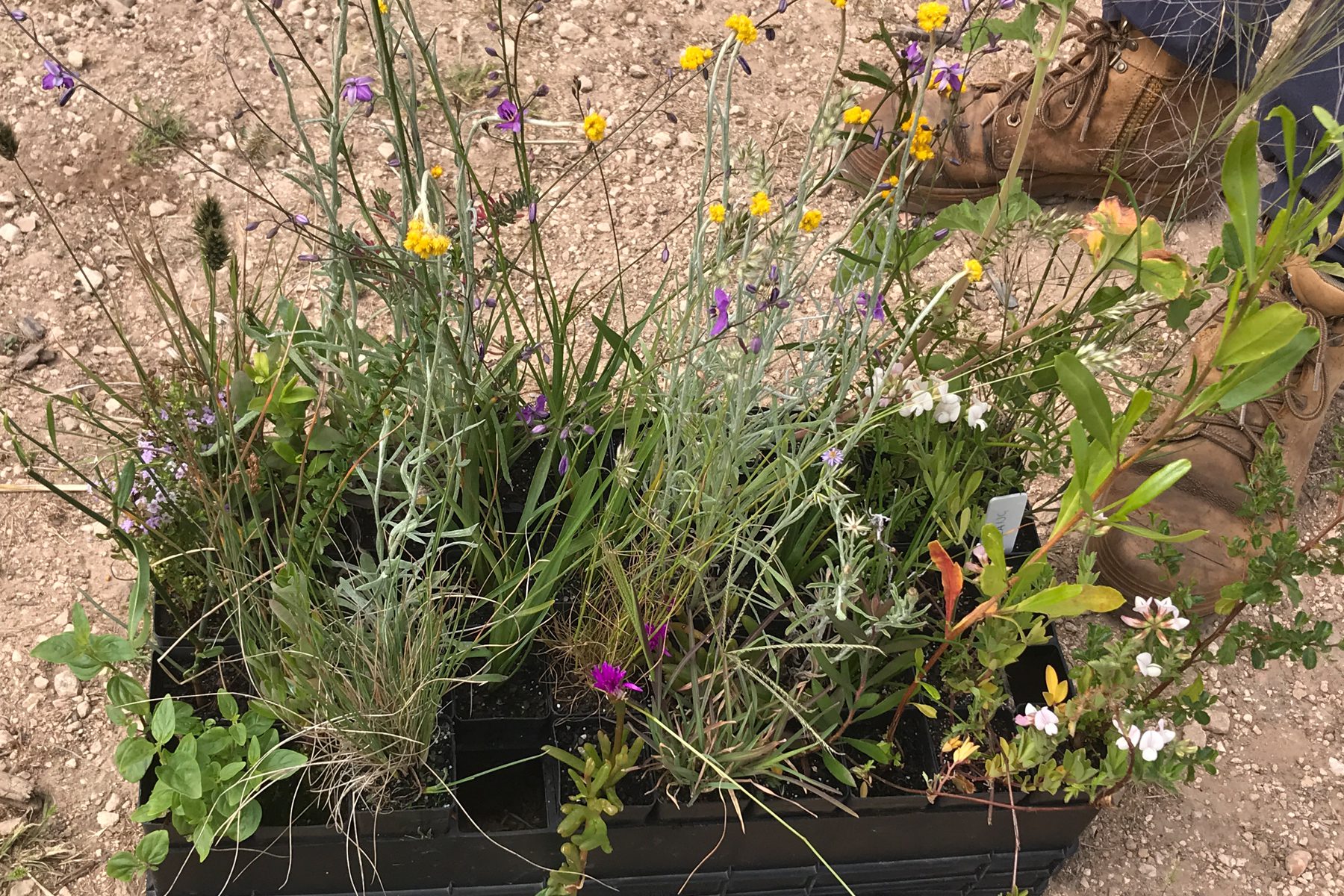

Acknowledgments
The original EcoVineyards program was funded via the National Landcare Program Smart Farms Small Grants program with the Wine Grape Council of South Australia (WGCSA) and Retallack Viticulture Pty Ltd working in partnership in SA from 2019. The WGCSA continue their involvement with the national program as a founding partner.
Wine Australia is funded by grapegrowers and winemakers through levies and user-pays charges, and by the Australian Government, which provides matching funding for research, development and adoption (RD&A) investments.
We acknowledge and pay respect to the past, present, and future Traditional Custodians and Elders of this nation and the continuation of cultural, spiritual, and educational practices of Aboriginal and Torres Strait Islander peoples
Frequently asked questions
When will the program commence?
The National EcoVineyards program commenced in July 2022 and run for three years until June 2025. Stay tuned for updates via this website and our social media feeds as the program gets underway.
Which regions are participating?
We are partnering with regional associations who will act as a primary conduit for communications to their members. We will announce the ten participating regions in mid-September 2022.
What are the key focus areas of the National EcoVineyards program?
– Functional biodiversity
– Ground covers (including cover crops)
– Soil health
How many demonstration sites be established?
An expression of interest will be distributed to all growers in a participating region in October/November 2022. Up to four EcoGrowers per region will be chosen on merit and their capacity to deliver meaningful outcomes based on a range of selection criteria, which will be clearly communicated as a part of the expression of interest process.
How do I sign up to become an EcoGrower (demonstration sites)?
There will be a Regional On-ground Coordinator (ROC) based in each participating region, who will liaise with the hosting regional organisation to strengthen regional networks and bring technical expertise to support local wine growers.
How will wine growers be supported?
There will be an on-ground coordinator based in each region, who will liaise with the hosting regional organisation to strengthen regional networks and bring technical expertise to support local wine growers.
When will face-to-face regional events be scheduled?
We will be running grower events in spring and autumn each year in each participating region. Information will be disseminated via each regional organisation, this website (see the EcoVineyards events tab), Eventbrite and our social media feeds. Scheduling for events in spring will occur in September 2022.
Can I access more information?
Supporting information is published on the existing WGCSA EcoVineyards page and will be migrated across to this website soon.
Enquiries
Please direct all enquiries to the National EcoVineyards Program Manager, Dr Mary Retallack [email protected]
Follow us on Facebook and Instagram to find out more @EcoVineyards
National EcoVineyards Program Manager
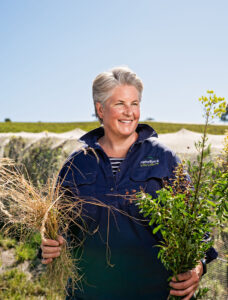
Dr Mary Retallack
BAppSc., PGradDip (NRM), BEd., GradDip (Viti), PCert. (Arb), PhD (Viti/PlantProt), CPAg, MAIA, GAICD, ARLF
Mary is the Managing Director of Retallack Viticulture Pty Ltd which offers a broad range of agribusiness and agroecological consulting services throughout Australia and overseas.
Mary co-founded and currently manages the nationally recognised EcoVineyards program in SA in partnership with the WGCSA https://www.wgcsa.com.au/ecovineyards.html
As an experienced agricultural scientist, agroecologist and third-generation viticulturist, Mary brings a wide range of skills and experience from practical, research, teaching, and consultancy roles and is recognised internationally as a Certified Practising Agriculturist (CPAg).
Mary has a PhD in viticulture and plant protection and associated tertiary qualifications in conservation and park management, natural resource management, adult education, and arbitration. Mary is a recognised leader in the field of functional biodiversity enhancement. She recently finished PhD studies in this area with a focus on the role of native insectary ground cover plants and measurement of their functional biodiversity benefits by assessing the predatory arthropods found in association. She is also an adult education extension specialist with tertiary qualifications in education.
Mary has published broadly on the topics of native ground cover species and functional biodiversity enhancement in vineyards with 24 recent publications produced over the past three years, and numerous public speaking engagements both in Australia and internationally. Recent examples include: 21st GiESCO International Meeting (Group of international Experts for Cooperation on Vitivinicultural Systems) in Thessaloniki Greece; the 42nd Congress of Vine and Wine, International Organisation of Vine and Wine (OIV) in Geneva, Switzerland; the 18th Australian Wine Industry Technical Conference in Adelaide, South Australia; and the Bragato Research Institute Grape Day webinar presentation in 2020.
She is also a member of the International Organisation of Vine and Wine (OIV) Viticulture Commission, Enviro and Protec groups, and The Australian and New Zealand Grapegrower and Winemaker Journal Editorial Panel.
Mary’s leadership and excellence in science have been acknowledged via inclusion in The Australian inaugural list of 100 Green Power Players 2022, Gourmet Traveller WINE Len Evans Award for Leadership 2020, National Farmers’ Federation inaugural Diversity in Agriculture Leadership program 2018, Businesswomen’s Hall of Fame 2017, Emerald Grain’s list of 100 Women in Australian Agribusiness 2014, RIRDC Rural Women’s Award (national winner) 2012.
Mary is an ambassador for PIRSA’s Women Influencing Agribusiness and Regions, and Great Wine Capitals Knowledge Exchange initiatives. She is a Stepping into Leadership program and Drought Resilience Leaders Mentoring Program mentor. She lives on a small vineyard and apple orchard in the Adelaide Hills, South Australia.


